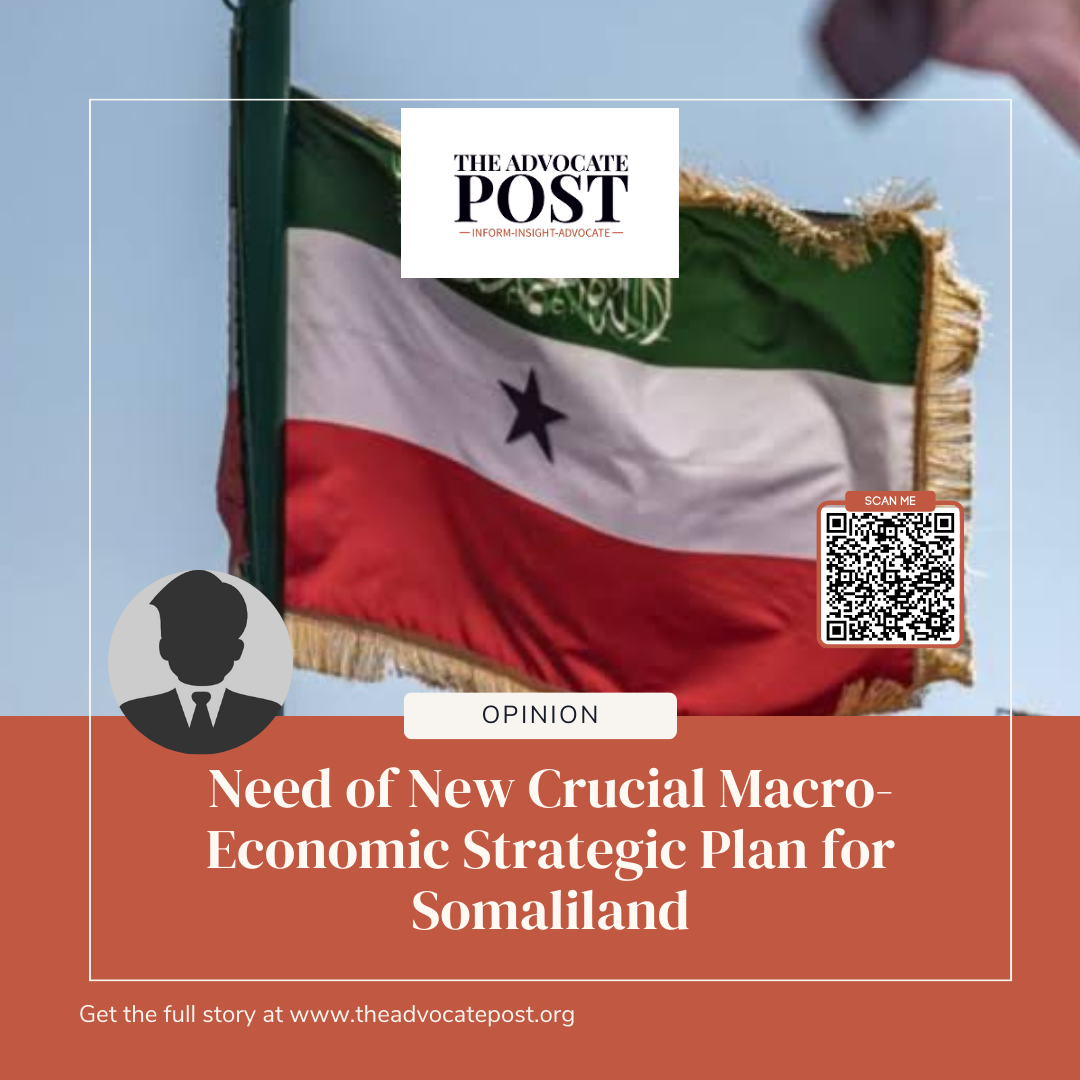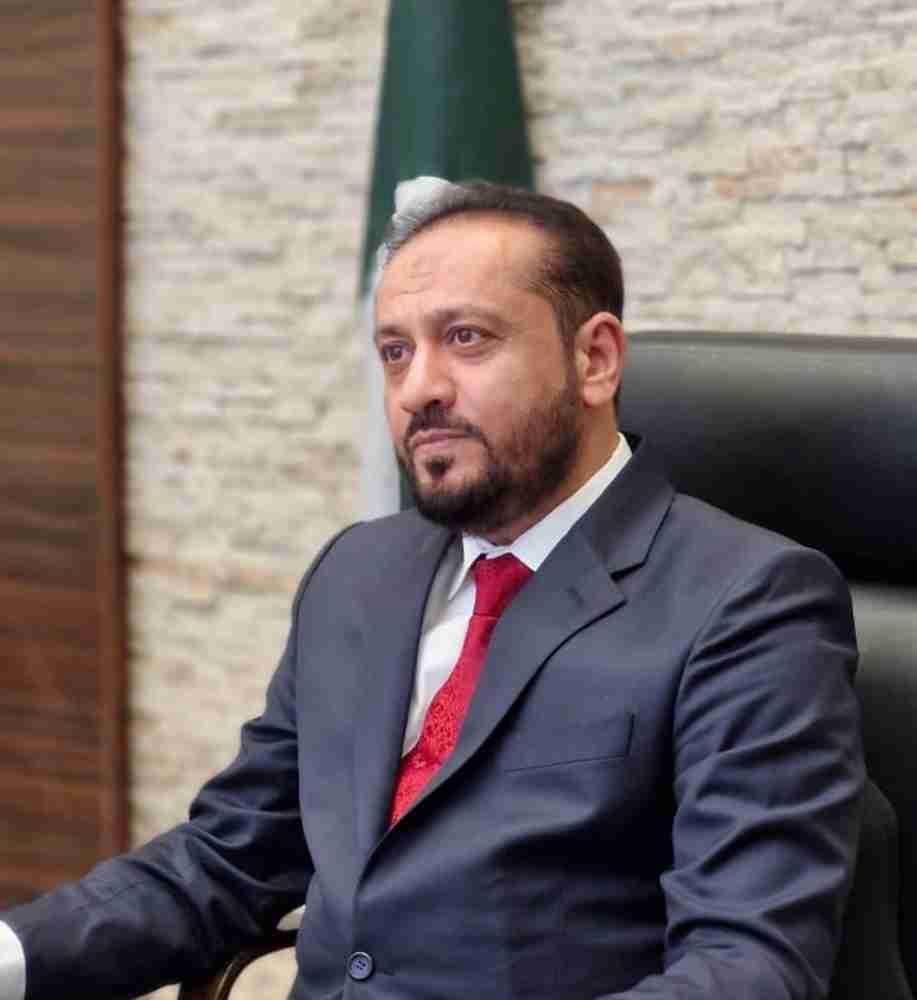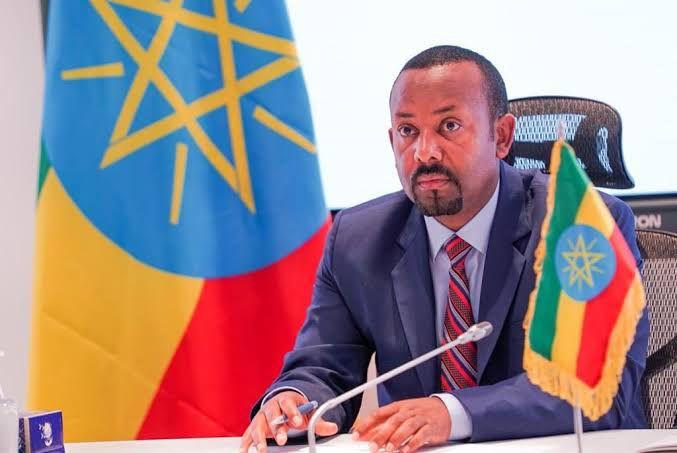By Abdirazak Jama Mohamed (Somaliland)
Somaliland’s Economic Landscape: Challenges, Strengths, and Opportunities
Somaliland, having declared its independence from Somalia in 1991, operates with a relatively stable governance system despite its lack of international recognition. This self-declared republic remains unrecognized by Somalia and the international community, impeding its ability to fully integrate into the global economy. Despite this, Somaliland has made significant strides in building state institutions, holding democratic elections, and managing its political and economic affairs.
Historical Context and Political Economy
The collapse of the Somali government led to Somaliland’s declaration of independence, followed by civil conflict and territorial disputes. While the political separation from Somalia remains unresolved, Somaliland has regained control over its territories and established functioning state institutions. However, its unrecognized status restricts access to vital international resources and economic opportunities, hindering potential for foreign direct investment (FDI) and formal trade agreements.
Somaliland operates under a democratic multi-party system with regular elections, and its government has implemented policies aimed at achieving political stability and fostering economic growth. Nonetheless, the lack of recognition limits its interaction with international economic bodies, posing challenges for its economic governance.
Macro-Economic Environment and Key Challenges
Somaliland’s economy is heavily reliant on agriculture, particularly livestock, which constitutes a significant portion of its GDP. Other key sectors include trade, tourism, and mining. Remittances from the large diaspora community also play a crucial role in supporting the economy, providing income to households and enabling local business investments.
However, the country faces rising inflation and unemployment rates, particularly among youth, along with significant infrastructure challenges. Economic growth remains constrained due to the inability to secure international funding and negotiate favorable trade deals. The absence of formal recognition prevents access to essential international financial institutions like the IMF or the World Bank, limiting the country’s ability to fund large-scale development projects or access global financial markets.
Challenges Facing Somaliland’s Macro-Economy
One of the most pressing issues is the lack of international recognition, which creates political and financial barriers for Somaliland. Without the ability to access loans from international financial institutions, the country struggles to finance key infrastructure projects, such as roads, energy, and healthcare facilities. This results in economic stagnation and worsens living conditions, especially in rural areas.
The agricultural sector faces challenges related to water scarcity, limited technology adoption, and underdeveloped infrastructure, while the renewable energy sector has significant untapped potential. Despite these hurdles, alternative funding mechanisms such as regional financial institutions, NGOs, and diaspora contributions offer potential solutions to mitigate the impact of non-recognition.
Youth Unemployment and Skills Mismatch
Somaliland has a predominantly young population, with a large proportion under the age of 25. High youth unemployment presents both a challenge and an opportunity for the economy. The mismatch between the skills young people possess and the demands of the labor market exacerbates the unemployment issue. Educational attainment, particularly in rural areas, is often low, limiting job opportunities and economic engagement.
Key sectors such as technology, construction, and agriculture suffer from a lack of skilled workers, while local businesses struggle to find qualified candidates. Addressing youth unemployment is critical for economic stability, as high unemployment can lead to social unrest, crime, radicalization, and increased migration. Moreover, failure to harness the potential of young people results in lost opportunities for innovation and economic productivity.
Strategies for Addressing Youth Unemployment
To tackle youth unemployment, Somaliland must focus on education reforms and vocational training programs that align with market demands. Targeted programs in sectors such as ICT, renewable energy, and sustainable agriculture can equip youth with the skills needed for the job market. Encouraging youth entrepreneurship through government-backed loans, mentorship programs, and incentives can also foster economic growth and innovation.
Strengths in Somaliland’s Macro-Economic Landscape
Despite its challenges, Somaliland has several strengths in its economic landscape. The country has shown resilience through effective fiscal management and disaster preparedness. Proactive budgeting for national disasters, such as droughts and floods, has minimized the economic impact of crises and maintained public trust. Emergency funds and disaster response mechanisms ensure that essential services continue during emergencies, helping to maintain national stability and support economic growth.
Additionally, Somaliland has focused on maintaining a sustainable debt profile despite limited access to international financial markets. The government has prioritized fiscal prudence, balancing domestic revenue generation with careful spending. This approach creates a favorable environment for both domestic and foreign investments in sectors such as renewable energy, mining, and agriculture.
Opportunities for Growth and Development
Somaliland’s youth population presents a significant opportunity for economic growth. By investing in youth employment programs, vocational training, and entrepreneurship, the country can unlock the potential of its young workforce. International models, such as South Korea’s focus on education and Rwanda’s skills development programs, offer valuable lessons for Somaliland’s policy framework.
Efficient public resource management is another area for improvement. While progress has been made, issues such as corruption, inefficiency, and lack of transparency hinder optimal resource allocation. Adopting international best practices in public financial management and accountability can further enhance resource utilization. Public-private partnerships (PPPs) can also play a key role in funding large infrastructure projects, leveraging private sector expertise while sharing risks.
Sustainable development and natural resource management are also key areas for growth. Somaliland can improve its management of sectors like mining, agriculture, and fisheries, ensuring long-term environmental protection alongside economic development. Effective resource utilization will support sustainable growth and reduce reliance on external funding.
Strategic Alignment with International Initiatives
Somaliland should consider aligning its fiscal policies with IMF guidelines and integrating the UN’s Sustainable Development Goals (SDGs) into national policies. Adopting international frameworks will help address issues like poverty reduction, gender equality, and sustainable growth, while also building resilience against economic shocks.
Additionally, a comprehensive social safety net system, including unemployment benefits, healthcare subsidies, and pensions, could help reduce poverty and inequality, particularly among vulnerable populations. By promoting diversification in the economy and creating favorable conditions for investment, Somaliland can attract foreign direct investment (FDI) and foster long-term development.
Policy Recommendations
To unlock Somaliland’s full economic potential, several policy recommendations are necessary:
Conclusion
Somaliland’s Ministry of Finance and Economic Development hinges on addressing key challenges, such as its lack of international recognition and high youth unemploymentSomaliland east regions political conflict Sool and Sanag.
Despite these obstacles, opportunities for growth exist through strategic investments in youth employment, resource management, and public-private partnerships. By adopting sound policies, engaging with international partners, and leveraging its strengths, Somaliland can build a resilient, diversified, and sustainable economy.
Authors: Finance Advisor, Senior Economist, Somaliland Ministry of Finance & Abdirazak Jama Mohamed (Buraale)





